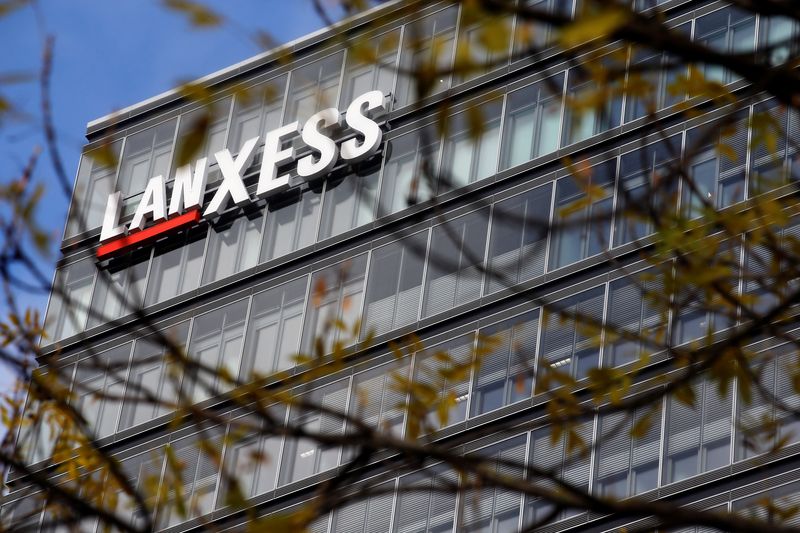By Linda Pasquini and Andrey Sychev
(Reuters) -Lanxess expects a slower first quarter than last year as high energy costs weigh, the German speciality chemicals maker said on Wednesday, although it pointed to a fairly solid U.S. market.
The U.S. market for battery chemicals is picking up and has overtaken the European one, Chief Executive Matthias Zachert told a media call, deeming the U.S. economy "relatively robust", with energy prices four to six time lower than in Europe.
Lanxess, which has a joint venture with Canada-based Standard Lithium to develop new technology to extract industrial-grade lithium in the U.S., managed to pass on "extreme" cost increases in full to customers in 2022, Zachert said in a statement.
However, he warned lower demand seen in the final quarter of 2022 had spilled into this year.
European chemicals firms have painted a grim picture for 2023, warning the impact of Russia's invasion of Ukraine, inflation and slowing growth are likely to peg back earnings.
Cologne-based Lanxess sees first-quarter core earnings(EBITDA) pre-exceptionals of 180-220 million euros ($193.3-$236.2 million), versus 320 million in the same period last year.
Its shares were down 7% at 1034 GMT.
When asked about potential benefits of the U.S. Inflation Reduction Act (IRA), Zacher said Lanxess was looking carefully at it while also consulting customers.
The firm would be able to see whether it could benefit from the IRA over the next one or two years, he added.
The company has grown steadily in the U.S, with the proportion of total sales there increasing from 16% to 26% over the last six years, while Germany's share remained unchanged.
In China, Lanxess will wait to see how things develop to consider new investments, he said, as it weighs the risks of the geopolitical uncertainty.
It expects customers will need three to six months to destock and speed up production again, with a recovery of China's economy seen in the second quarter at the earliest.

The chemicals group sees 2023 core earnings at the same level as last year, when it reported a 14.1% rise to 930 million euros.
($1 = 0.9314 euros)